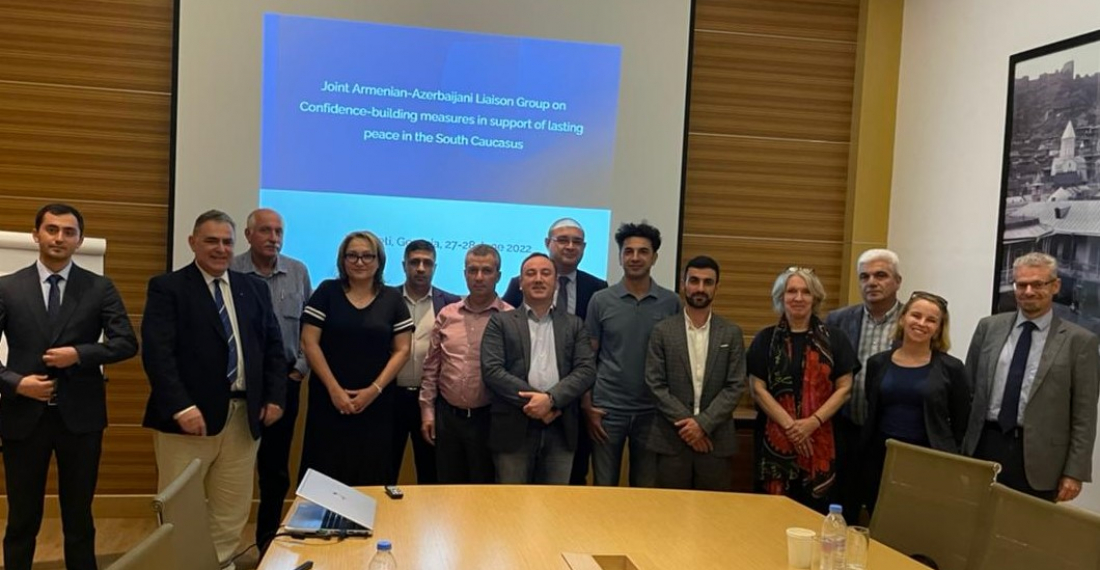The Joint Armenian-Azerbaijani Liaison Group on Confidence-building measures in support of lasting peace in the South Caucasus (JOLIG), made up of 11 Armenian and Azerbaijani independent experts and opinion-shapers, met in Kachreti, Georgia on 27 and 28 June 2022 to review its activity, and agree on a strategy as to how its work on confidence-building measures can contribute to efforts aimed at bringing lasting peace in the South Caucasus.
Participants discussed ongoing efforts aimed at establishing the right conditions for the normalisation of relations between Armenia and Azerbaijan being undertaken by the governments of the two countries with the support of international players. They called on the leadership of the two countries to remain focused and committed to this mission.
Participants recognised the grave danger emanating from ongoing international processes, and particularly the war in Ukraine which has implications for all the Eastern Partnership countries, and for European and Global security. They hoped for a swift end to the conflict and for a return of peace in Ukraine.
The group emphasised its belief that confidence-building measures are necessary to be implemented in the current state of Armenia-Azerbaijan relations, and were indispensable as the governments of Armenia and Azerbaijan seek peaceful solutions to long lasting disputes and controversies between them.
The group assessed the reaction to its report “The South Caucasus from war to peace, 30 measures between now and 2030” published on 2 April 2022. It noted the overwhelmingly positive reaction to the report in the region itself and in the international community, and particularly as they were expressed at outreach meetings held in Baku on 25 April and in Yerevan on 30 May.
The Group decided to remain constituted for the period up to 31 December 2025 and identified the steps it will take in the next six month period in support of ongoing peace efforts in the region. The Group decided to intensify its contacts with the governments of Armenia and Azerbaijan and other local, regional and international stakeholders to identify the best ways it can contribute to ongoing peace efforts by helping to build dialogue and trust and reduce misperception. It will remain engaged with media and civil society networks to ensure that the processes for peace are better understood in Armenia and Azerbaijan.
The members of the Joint Armenian-Azerbaijani Liaison Group are: Ahmad Alili, Mehman Aliyev, Stepan Grigoryan, Taron Hovhannissyan, Shahla Ismayil, Samir Mammadov, Gevorg Melikian, Johny Melikian, Benyamin Poghosyan, Ramazan Samadov and Anar Valiyev.
Participants at the meeting in Kachreti thanked LINKS Europe for its continuing engagement and its facilitation of the process of building trust and confidence in the South Caucasus, and the European Union for its support for their initiative. Representatives of LINKS Europe and of the EU Special Representative for the South Caucasus were in attendance at the meeting in Kachreti, and actively contributed to the discussions.
For more information on the Joint Liaison Group, read here







